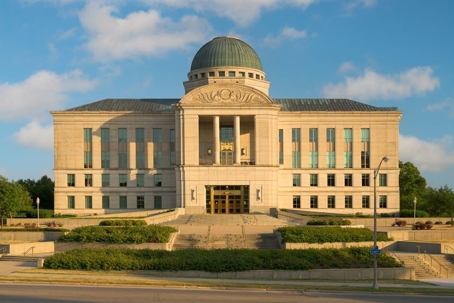Appealing a decision in court can be an intimidating task, especially in Iowa. Navigating through the specific procedural laws and rules that relate to your case can be confusing for those involved in the appeals process.
When it comes to Iowa appeals, it is important to understand the jurisdiction requirements, arguments that need to be made at each level of the appeals process, and resources available both online and in person. Taking the time to familiarize yourself with the challenges of appeal processes can help you have a better understanding of where you stand legally before heading back to court.
Iowa’s Court System Structure
The Iowa Court system is comprised of the local district court (trial court) and the appellate courts. The appellate courts are divided into two courts known as the Iowa Supreme Court and the Court of Appeals.
Legal issues or cases are first presented to the trial court. If a litigant believes the trial court made a significant error in deciding their case, they have certain rights to have the matter reviewed by the appellate courts. When a person asks for review of a trial court decision, the matter is referred to the Supreme Court, which then determines whether they will retain the issue, or transfer the issue to the Court of Appeals.
A decision of the Court of Appeals can at times be reviewed by the Iowa Supreme Court, which is ultimately the highest branch of the Iowa State Court system. As such, the Supreme Court’s decision is the final and controlling interpretation of Iowa law.
What Is an Appeal?
The process of asking for a review of a trial court’s decision is called an appeal. Generally, only final decisions of the trial court can be reviewed by the appellate courts, although there are certain limited exceptions.
How Long Do I Have to File an Appeal?
There are numerous types of appeals that may be used in certain circumstances, each with their own specific expectations and requirements. However, for all appeals, the time in which you have to file is always limited by certain timelines and without deviation.
This means that if you do not correctly file your appeal within those time frames, that you will not be able to ask the Appellate Court to review the trial court ruling. As a result of these strict deadlines, you must promptly contact an attorney to discuss your situation, or you may lose your opportunity to appeal forever.
The Iowa Court of Appeals System
The appellate courts operate as an additional safeguard against trial court orders that are incorrect. Stated another way, the purpose of the appellate courts in Iowa is to review the rulings and decisions from the trial courts to determine if those courts made the correct decisions. If the decision was incorrect, the appellate courts will decide how those issues should be correctly resolved. These appellate courts are specialized and operate under a separate system of procedures and rules from the trial courts. As such, it is essential if you believe an order or decision was made in error that you contact an attorney who is experienced in appeals to discuss what appellate options may be available.
The Court of Appeals Process
In a greatly simplified form, the appellate process consists of three steps.
The appellate court process is as follows:
- Filing the Notice of Appeal
- Reviewing the trial court records and transcript
- Writing briefs, which are legal summaries and arguments for the appellate courts to consider
At times, the appellate court may ask the attorneys to present oral arguments in addition to the written briefs. The case is then assigned to a panel of appellate judges who review the briefs and enter their ruling. The ruling may affirm the trial court. This means the trial court’s decision is final. The appellate ruling may reverse, or overrule, the trial court. This means that the trial court did not get it correct. Or, they may affirm in part and reverse in part. Depending upon the case, the appellate court may enter final orders, or send the matter back to the trial court for entry of further orders consistent with the appellate ruling. While Appeals are available in nearly every aspect of the law, including probate, family law, criminal defense, juvenile court, etc., the Appellate Court is bound to consider only those facts that were presented at the trial court.
Failure to present all relevant facts, or failure to preserve legal claims properly at the trial court level may result in these facts or claims being unable to be heard by the Appellate Court. Like the local trial courts, the Appellate Court proceedings are open to the public.
Iowa Court of Appeals Information & Resources
- Visit this link if you would like to watch an Appellate Court proceeding
- Visit this link if you would like to read current Appellate Court decisions
- If you are interested in local trial court proceedings, you should visit the Linn County Court house located at 51 3rd Ave Bridge, Cedar Rapids, IA 52401.
The attorneys at Howes Law Firm, P.C. have enjoyed a great deal of experience in appellate practice. Several attorneys in our office have had the honor of being invited to the Iowa Court of Appeals and the Iowa Supreme Court to present oral argument to the Justices on numerous occasions.
If you feel that a trial court order or decision has been entered that is not legally correct and you would like the opportunity to present your argument to the Appellate Court, we welcome you to contact us right away to discuss your options.
Call (319) 264-2922 or contact us online today.
